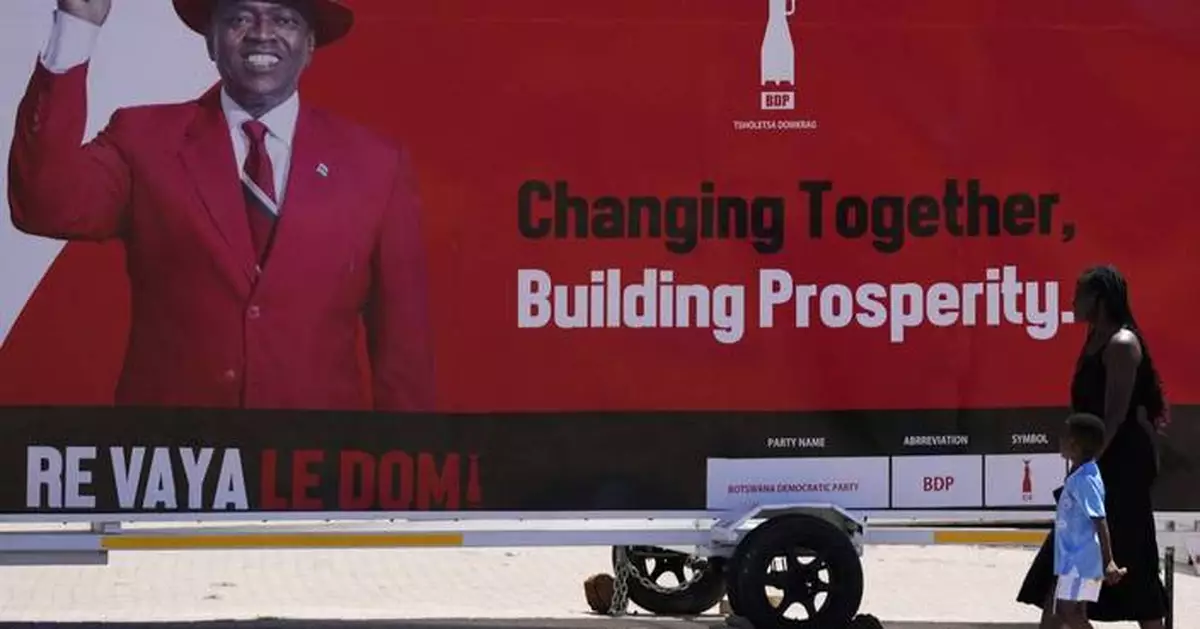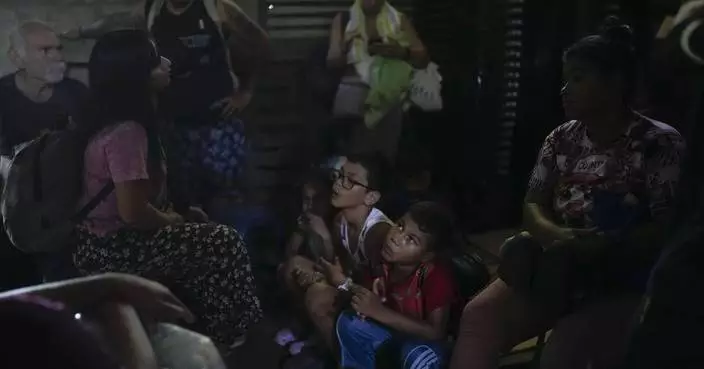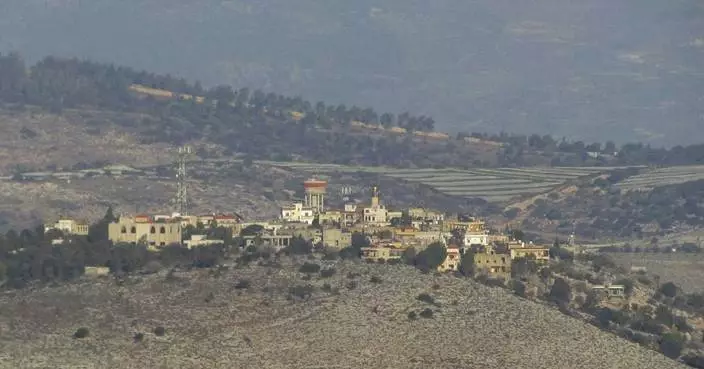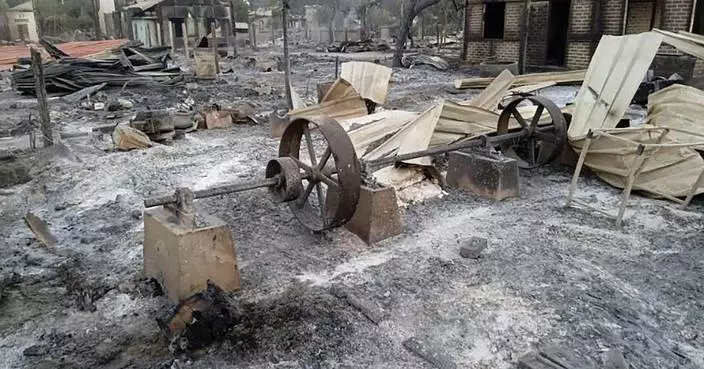GABORONE, Botswana (AP) — Polls opened in a national election in Botswana on Wednesday as voters decide if one of Africa's longest-ruling parties stays in power for another five-year term.
The Botswana Democratic Party has governed the southern African nation for 58 years, since independence from Britain in 1966. The election will determine the makeup of Parliament and lawmakers will later elect the president.
Click to Gallery
Botswana Democratic Party president Mokgweetsi Masisi dances during his election rally, a day before elections in Gaborone, Botswana, Tuesday, Oct. 29, 2024. (AP Photo/Themba Hadebe)
Residents wait their turn to cast their vote during the elections in Gaborone, Botswana, Wednesday, Oct. 30, 2024. (AP Photo/Themba Hadebe)
Residents wait to cast their vote during an election in Gaborone, Botswana, Wednesday, Oct. 30, 2024. (AP Photo/Themba Hadebe)
A man assisted by an electoral worker, walks towards the ballot box to cast his vote during the elections in Gaborone, Botswana, Wednesday, Oct. 30, 2024. (AP Photo/Themba Hadebe)
Residents wait for their turns to cast their votes during an election to decide if it keeps faith with one of the Africa's longest-ruling parties, in Gaborone, Botswana, Wednesday, Oct. 30, 2024. (AP Photo/Themba Hadebe)
A woman casts her vote during the elections in Gaborone, Botswana, Wednesday, Oct. 30, 2024. (AP Photo/Themba Hadebe)
Residents wait for their turns to cast their votes during an election to decide if it keeps faith with one of the Africa's longest-ruling parties, in Gaborone, Botswana, Wednesday, Oct. 30, 2024. (AP Photo/Themba Hadebe)
Residents wait for their turns to cast their votes during an election to decide if it keeps faith with one of the Africa's longest-ruling parties, in Gaborone, Botswana, Wednesday, Oct. 30, 2024. (AP Photo/Themba Hadebe)
Members of the Botswana Democratic Party sing and dance as they arrive for their election rally, a day before elections in Gaborone, Botswana, Tuesday, Oct. 29, 2024. (AP Photo/Themba Hadebe)
Members of the Botswana Democratic Party cheer their leader during election rally, a day before elections in Gaborone, Botswana, Tuesday, Oct. 29, 2024. (AP Photo/Themba Hadebe)
Botswana's President and Democratic Party leader Mokgweetsi Masisi dances during his election rally, a day before elections in Gaborone, Botswana, Tuesday, Oct. 29, 2024. (AP Photo/Themba Hadebe)
Posters showing election party candidates, a day before elections in Gaborone, Botswana, Tuesday, Oct. 29, 2024. (AP Photo/Themba Hadebe)
A man walks passes election posters, a day before elections in Gaborone, Botswana, Tuesday, Oct. 29, 2024. (AP Photo/Themba Hadebe)
Members of the Botswana Democratic Party sing and dance as they arrive for their election rally a day before elections in Gaborone, Botswana, Tuesday, Oct. 29, 2024. (AP Photo/Themba Hadebe)
Members of the Botswana Democratic Party sing and dance as they arrive for their election rally, a day before elections in Gaborone, Botswana, Tuesday, Oct. 29, 2024. (AP Photo/Themba Hadebe)
Botswana Democratic Party president Mokgweetsi Masisi speaks during his election rally, a day before elections in Gaborone, Botswana, Tuesday, Oct. 29, 2024. (AP Photo/Themba Hadebe)
A woman and a child passes an election poster of ruling party Botswana Democratic Party president Mokgweetsi Masisi in Gaborone, Botswana, Tuesday, Oct. 29, 2024. (AP Photo/Themba Hadebe)
President Mokgweetsi Masisi, a 63-year-old former high school teacher who also previously worked for UNICEF, is seeking a second and final term.
Botswana has been held up as one of Africa's success stories — a peaceful and stable democracy with one of the best standards of living in the region — but is facing new economic challenges that have pushed the ruling party to concede that policy change is needed.
That's largely because of a global downturn in demand for diamonds, which Botswana's economy relies on. Unemployment in the nation of some 2.5 million people has risen to 27% this year, and is significantly higher for young people.
The ruling party says it has listened to the concerns of voters and will pursue changes that could diversify an economy where diamonds account for more than 80% of Botswana's exports and a quarter of the GDP, according to the World Bank. One of its campaign slogans has been “Changing Together, Building Prosperity.”
On the eve of the election, Masisi held a boisterous final campaign rally in the capital, Gaborone, wearing a bright red suit jacket — the color of his party — and dancing with supporters.
Three other men are challenging Masisi for president: Duma Boko of the main opposition Umbrella for Democratic Change party, Dumelang Saleshando of the Botswana Congress Party and Mephato Reatile from the Botswana Patriotic Front.
Counting is expected to start straight after polls close Wednesday evening and the results could be announced within days.
“We are concerned about issues of employment and wage structures," said Karabo Manguba, a 29-year-old sales executive at a radio station who voted early in the morning. “Voting is a patriotic effort ... and our voices need to be heard."
While the Botswana Democratic Party has dominated the country's politics since independence, recent economic uncertainty has closed the gap between the BDP and the opposition, analysts say.
Botswana is the second biggest producer of diamonds, behind Russia, and has been responsible for all the biggest rough gems found in the past decade.
But sales of rough diamonds at Debswana, the company that Botswana's government jointly owns with the De Beers Group and a critical source of state revenue, were down nearly 50% in the first half of 2024, according to authorities. That has put a dent in the public purse and raised criticism of Masisi and the BDP for not taking steps to diversify the economy.
Government employees have received their salaries late as a result of the tight financial situation, taking the shine off of Botswana’s reputation for efficient government.
Ahead of the election, the BDP said it would now put emphasis on processing mineral resources for new revenue streams, while also building the agriculture and tourism sectors.
Just over a million people have registered to vote, according to the Independent Electoral Commission. Botswana is larger than France but has a small population, with the Kalahari Desert covering large portions of the landlocked country that borders South Africa. Drought and desertification threaten Botswana’s development and the livelihoods of many of its people.
The election could also revive Masisi’s feud with former President Ian Khama, the man he succeeded as Botswana’s leader and then fell out with.
Khama, the son of Botswana’s founding president, quit the BDP and went into exile in South Africa in 2021, accusing Masisi of taking an authoritarian approach to criticism. Khama was charged with illegal possession of a firearm and receiving stolen property in a criminal case he said was politically motivated to silence him.
Khama returned to Botswana in September to attend a court hearing and has campaigned for the Botswana Patriotic Front in an attempt to oust Masisi.
AP Africa news: https://apnews.com/hub/africa
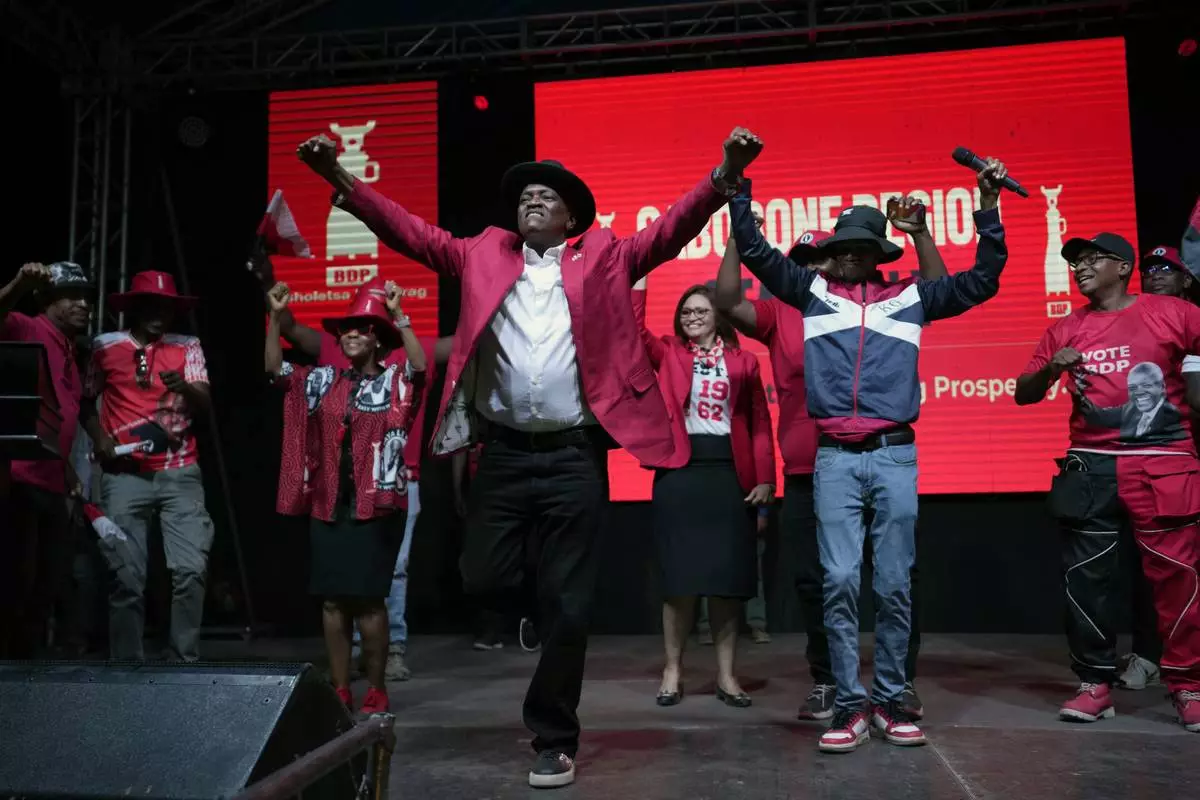
Botswana Democratic Party president Mokgweetsi Masisi dances during his election rally, a day before elections in Gaborone, Botswana, Tuesday, Oct. 29, 2024. (AP Photo/Themba Hadebe)
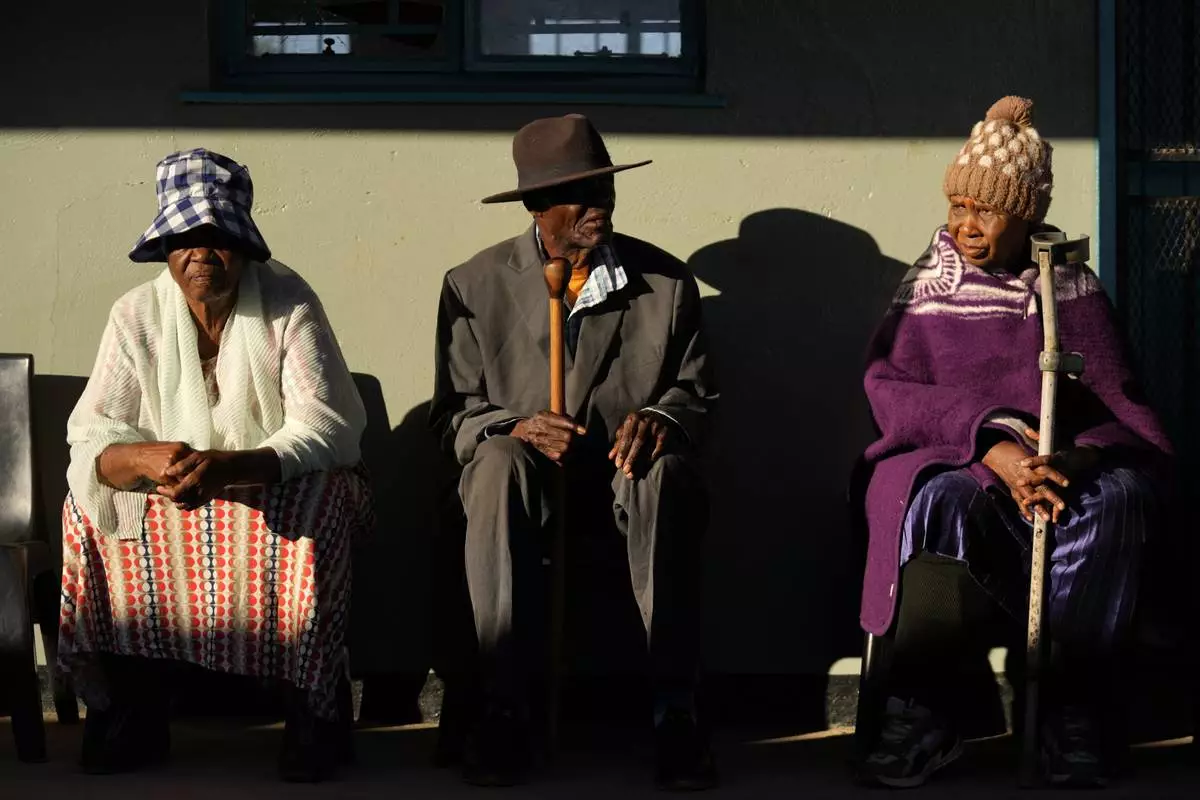
Residents wait their turn to cast their vote during the elections in Gaborone, Botswana, Wednesday, Oct. 30, 2024. (AP Photo/Themba Hadebe)
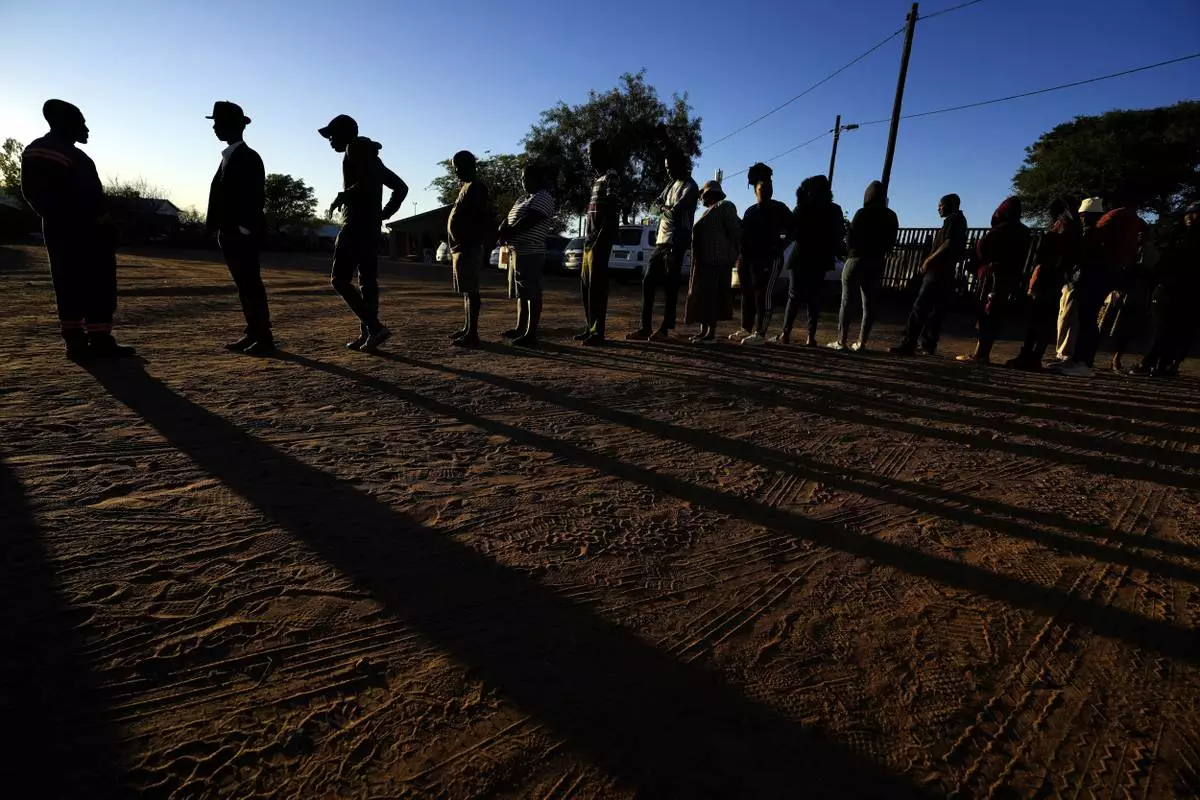
Residents wait to cast their vote during an election in Gaborone, Botswana, Wednesday, Oct. 30, 2024. (AP Photo/Themba Hadebe)
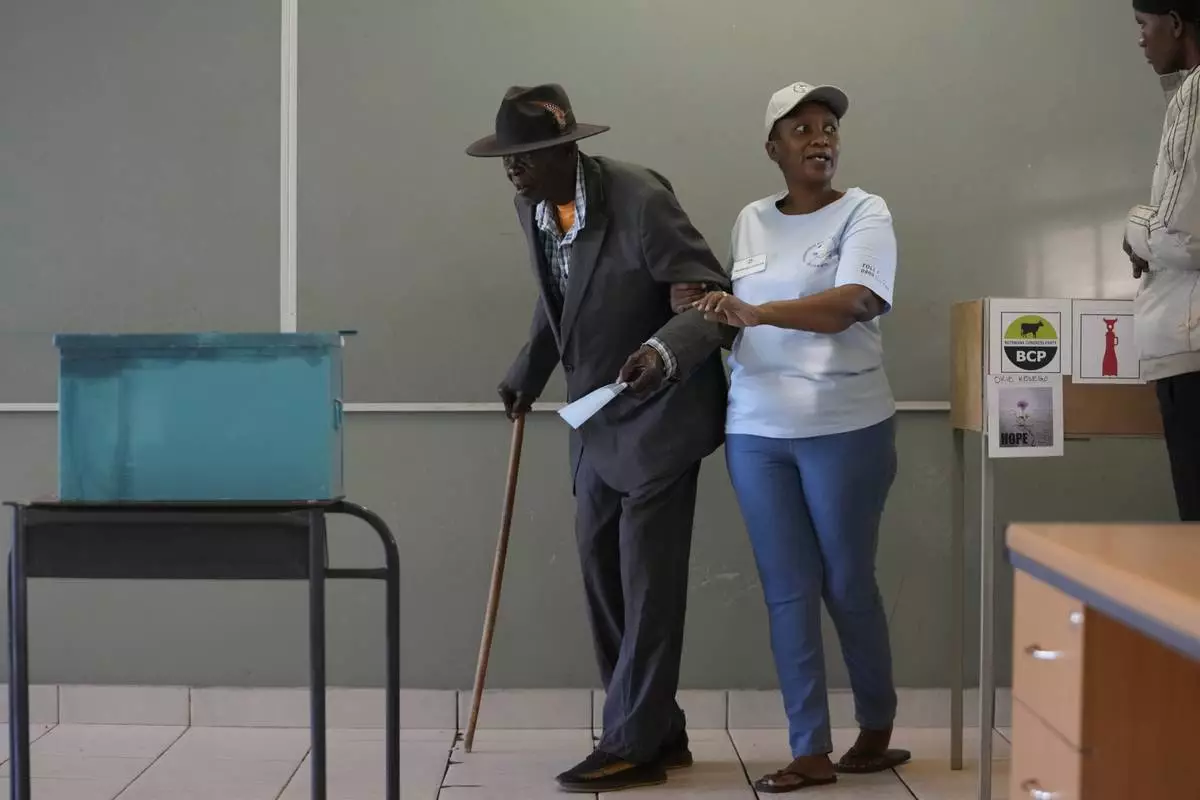
A man assisted by an electoral worker, walks towards the ballot box to cast his vote during the elections in Gaborone, Botswana, Wednesday, Oct. 30, 2024. (AP Photo/Themba Hadebe)
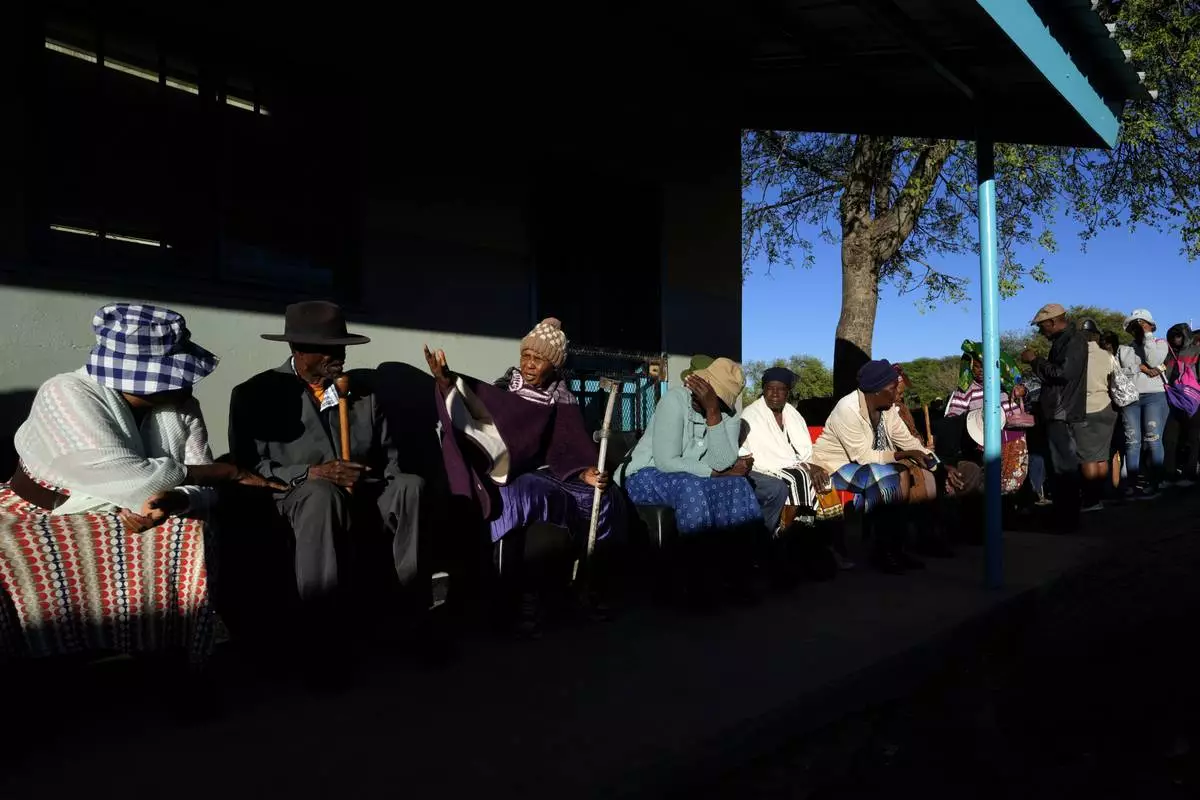
Residents wait for their turns to cast their votes during an election to decide if it keeps faith with one of the Africa's longest-ruling parties, in Gaborone, Botswana, Wednesday, Oct. 30, 2024. (AP Photo/Themba Hadebe)
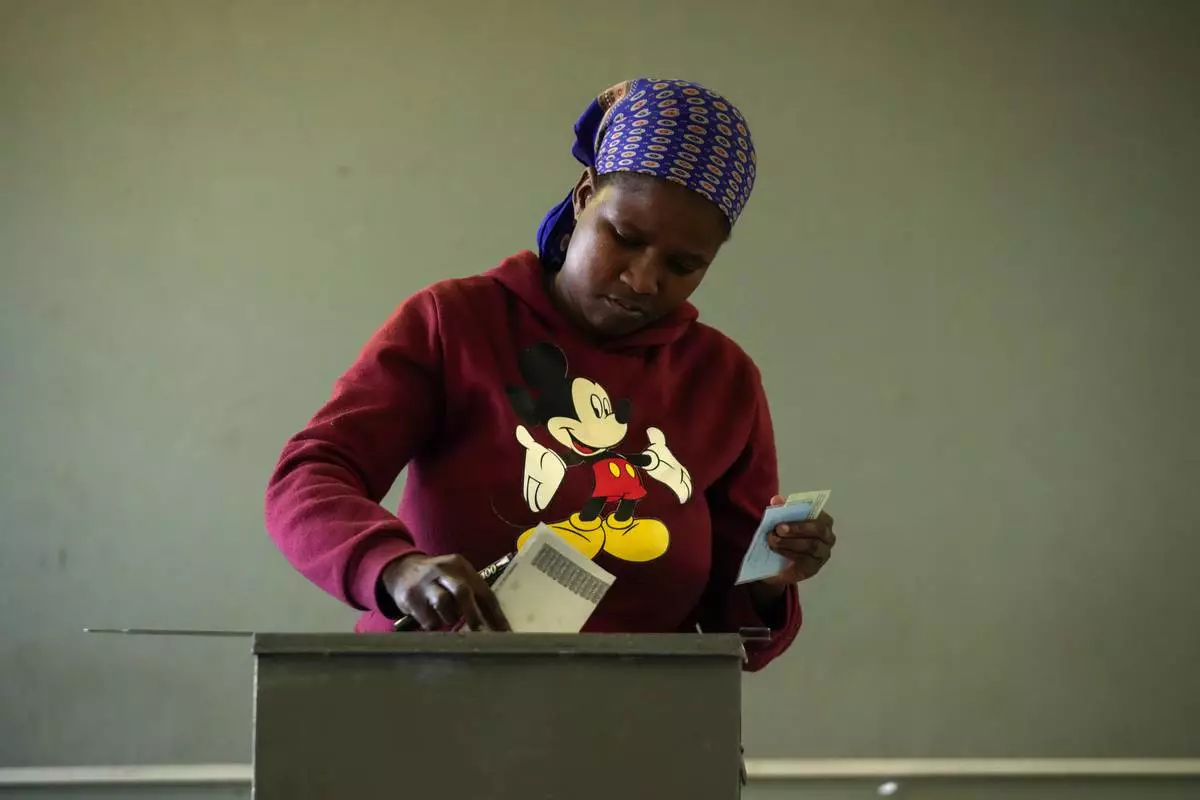
A woman casts her vote during the elections in Gaborone, Botswana, Wednesday, Oct. 30, 2024. (AP Photo/Themba Hadebe)
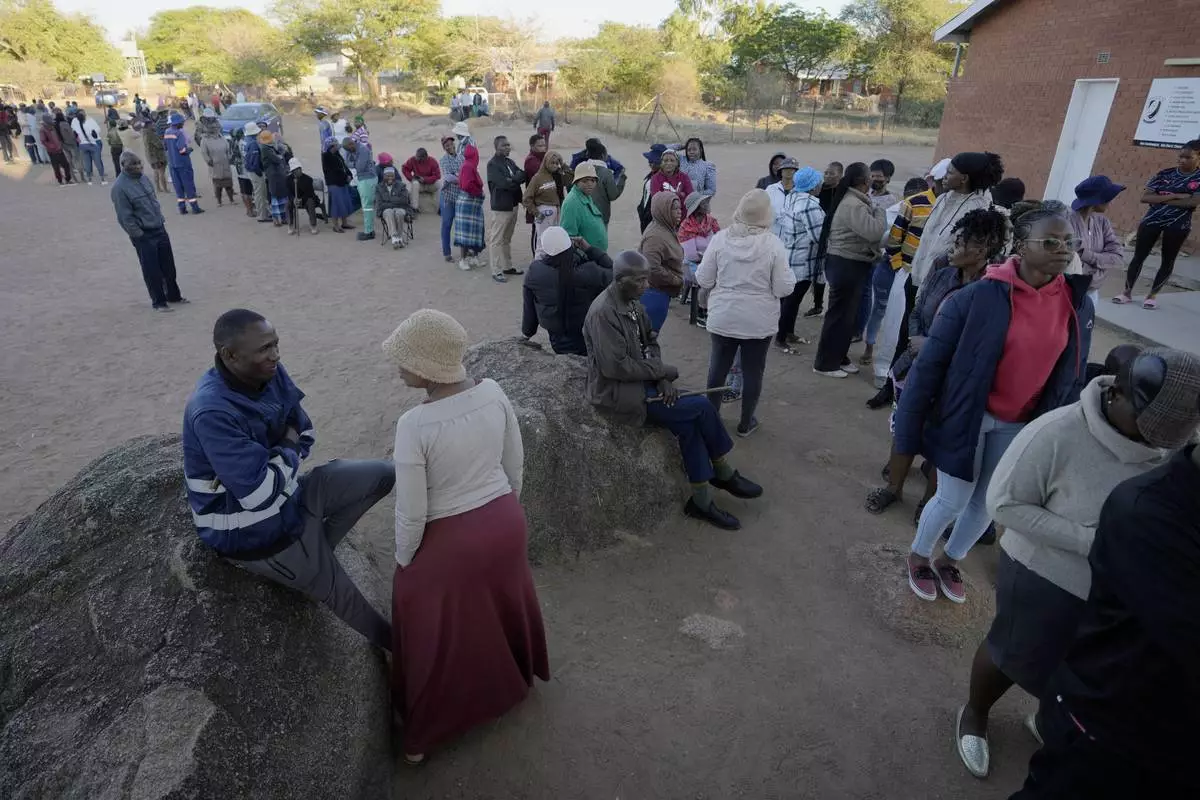
Residents wait for their turns to cast their votes during an election to decide if it keeps faith with one of the Africa's longest-ruling parties, in Gaborone, Botswana, Wednesday, Oct. 30, 2024. (AP Photo/Themba Hadebe)
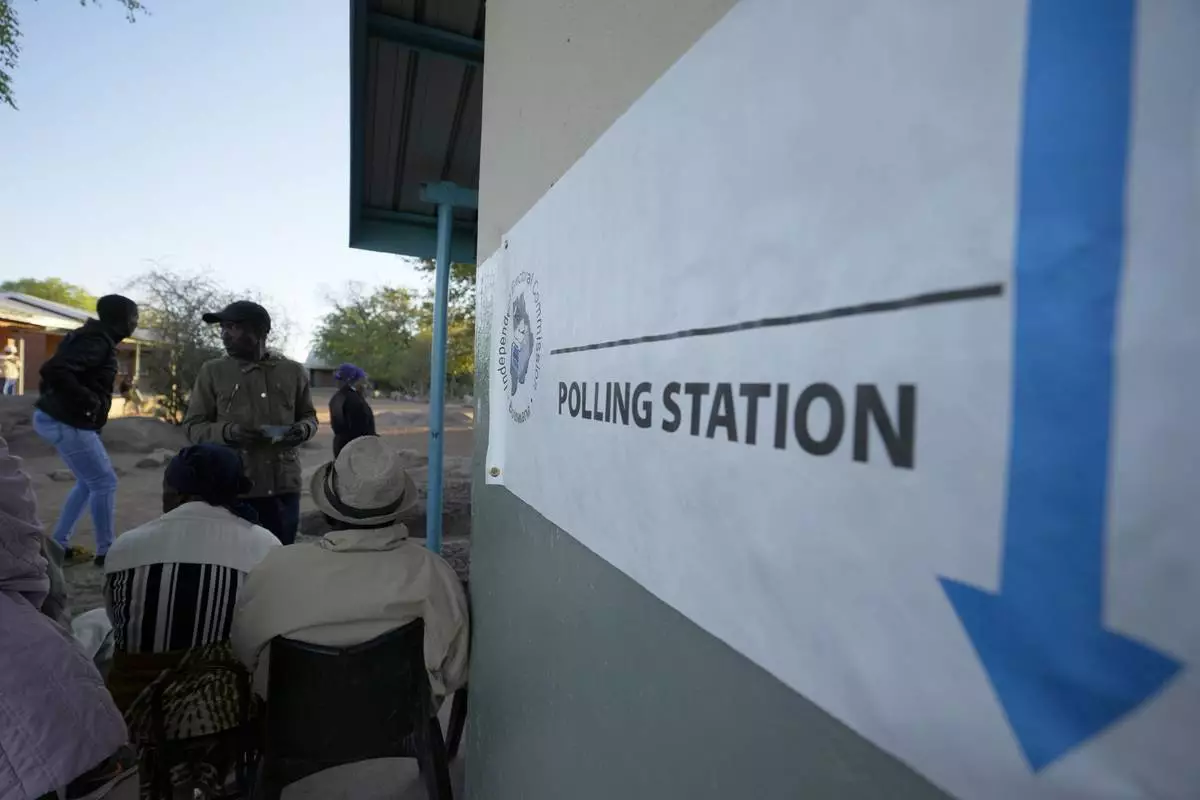
Residents wait for their turns to cast their votes during an election to decide if it keeps faith with one of the Africa's longest-ruling parties, in Gaborone, Botswana, Wednesday, Oct. 30, 2024. (AP Photo/Themba Hadebe)
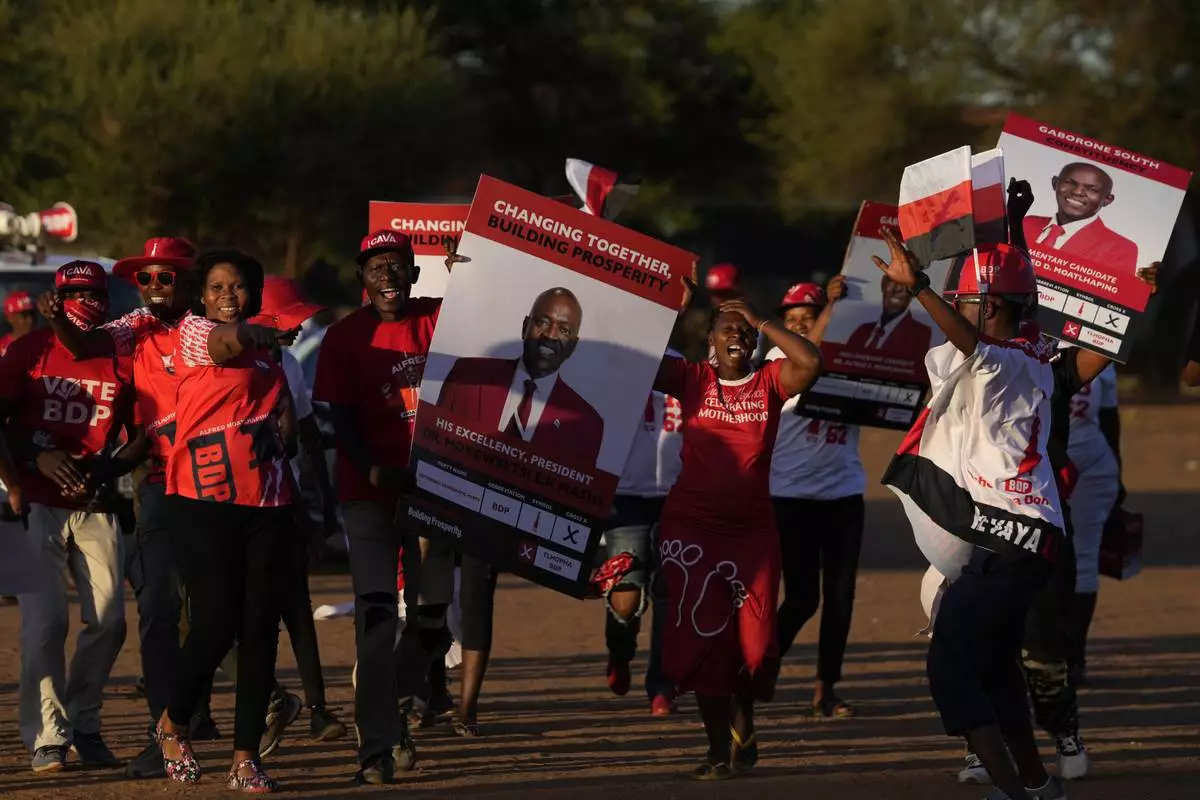
Members of the Botswana Democratic Party sing and dance as they arrive for their election rally, a day before elections in Gaborone, Botswana, Tuesday, Oct. 29, 2024. (AP Photo/Themba Hadebe)
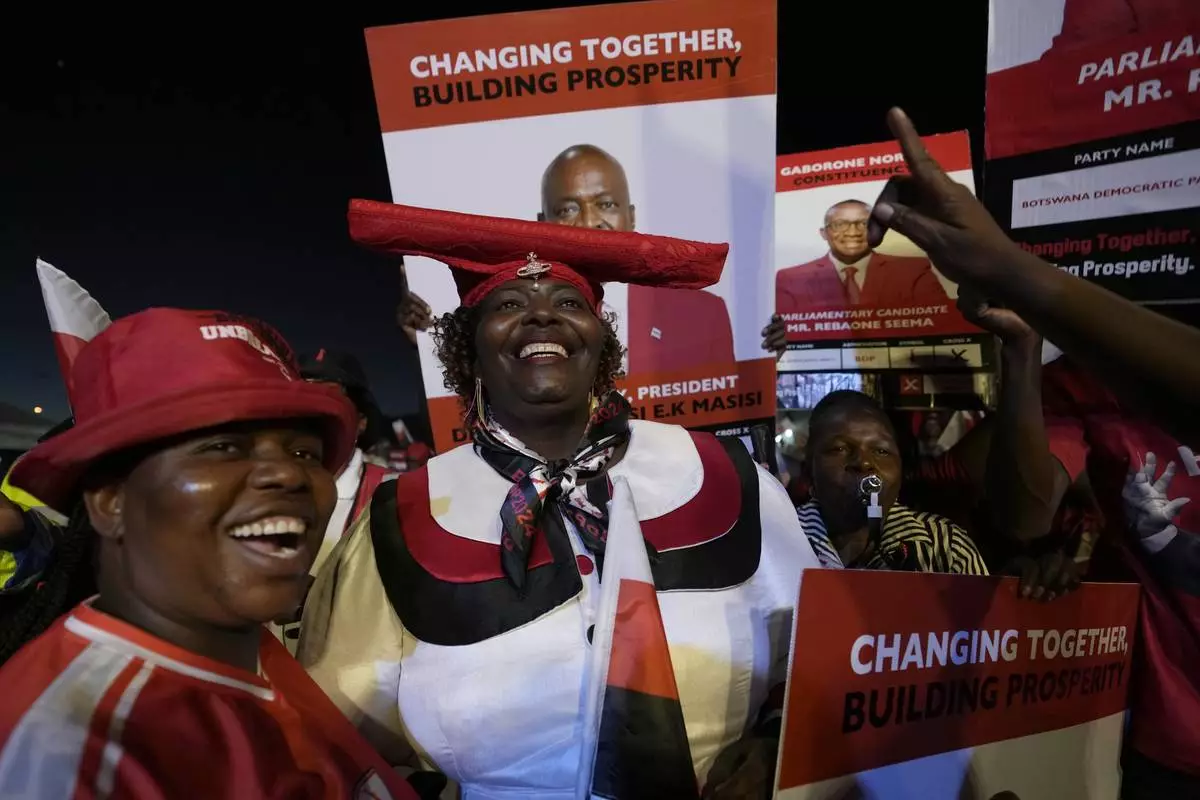
Members of the Botswana Democratic Party cheer their leader during election rally, a day before elections in Gaborone, Botswana, Tuesday, Oct. 29, 2024. (AP Photo/Themba Hadebe)
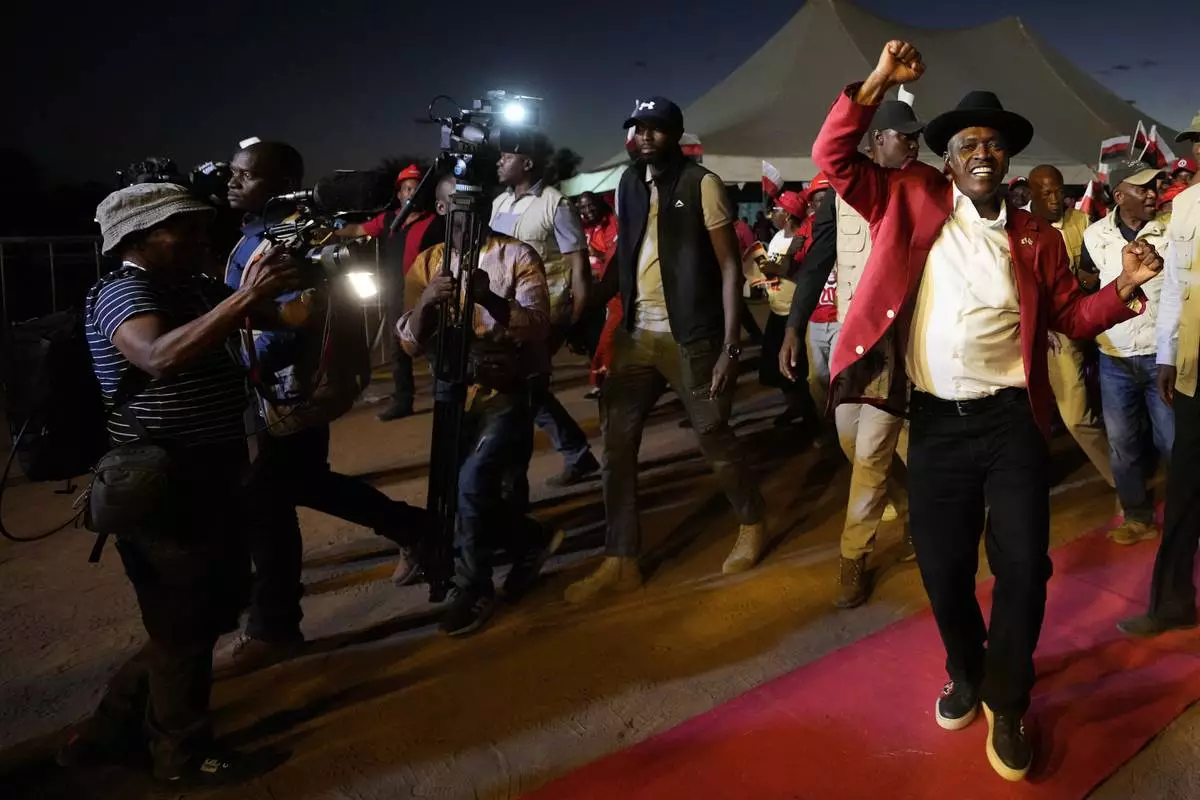
Botswana's President and Democratic Party leader Mokgweetsi Masisi dances during his election rally, a day before elections in Gaborone, Botswana, Tuesday, Oct. 29, 2024. (AP Photo/Themba Hadebe)
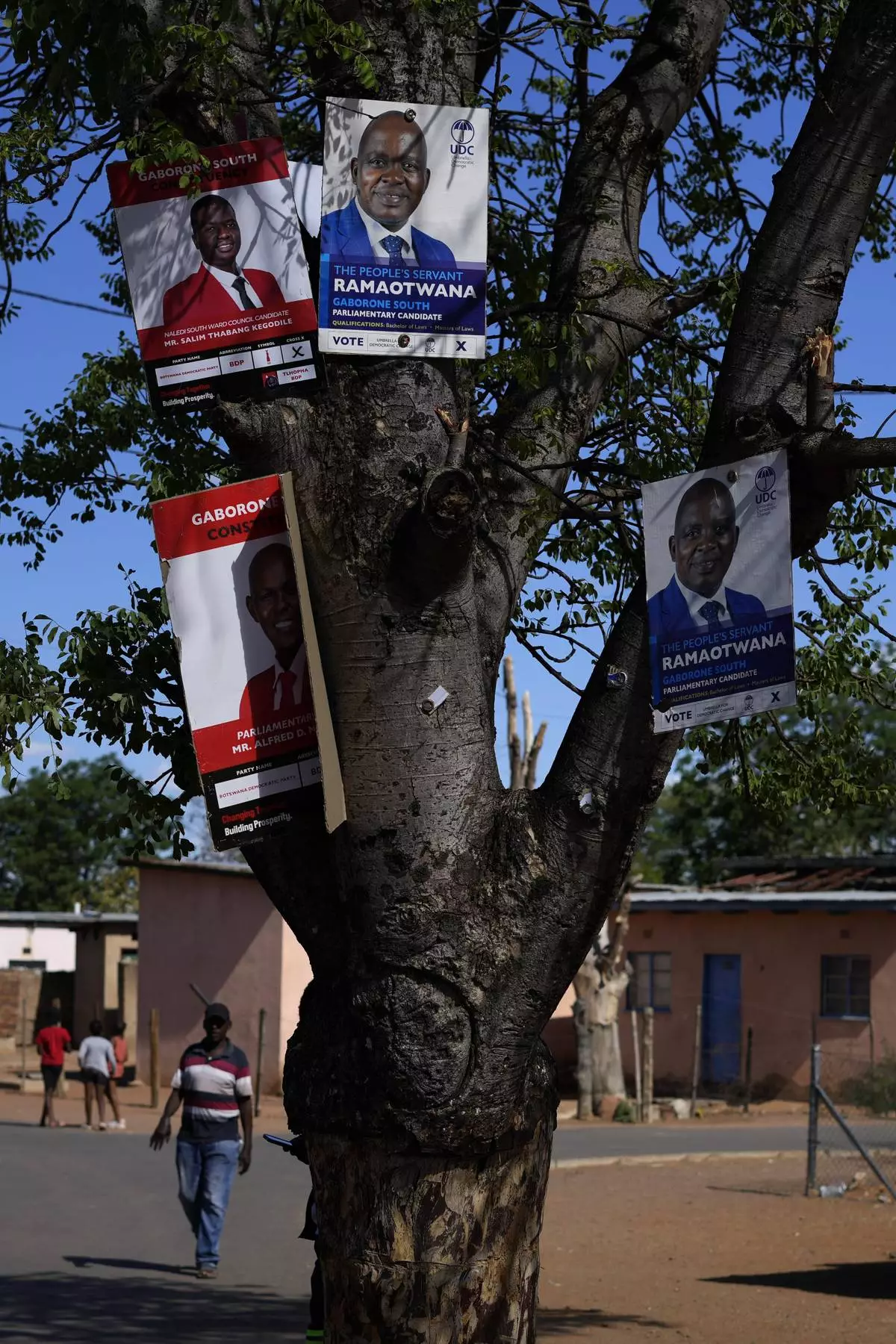
Posters showing election party candidates, a day before elections in Gaborone, Botswana, Tuesday, Oct. 29, 2024. (AP Photo/Themba Hadebe)
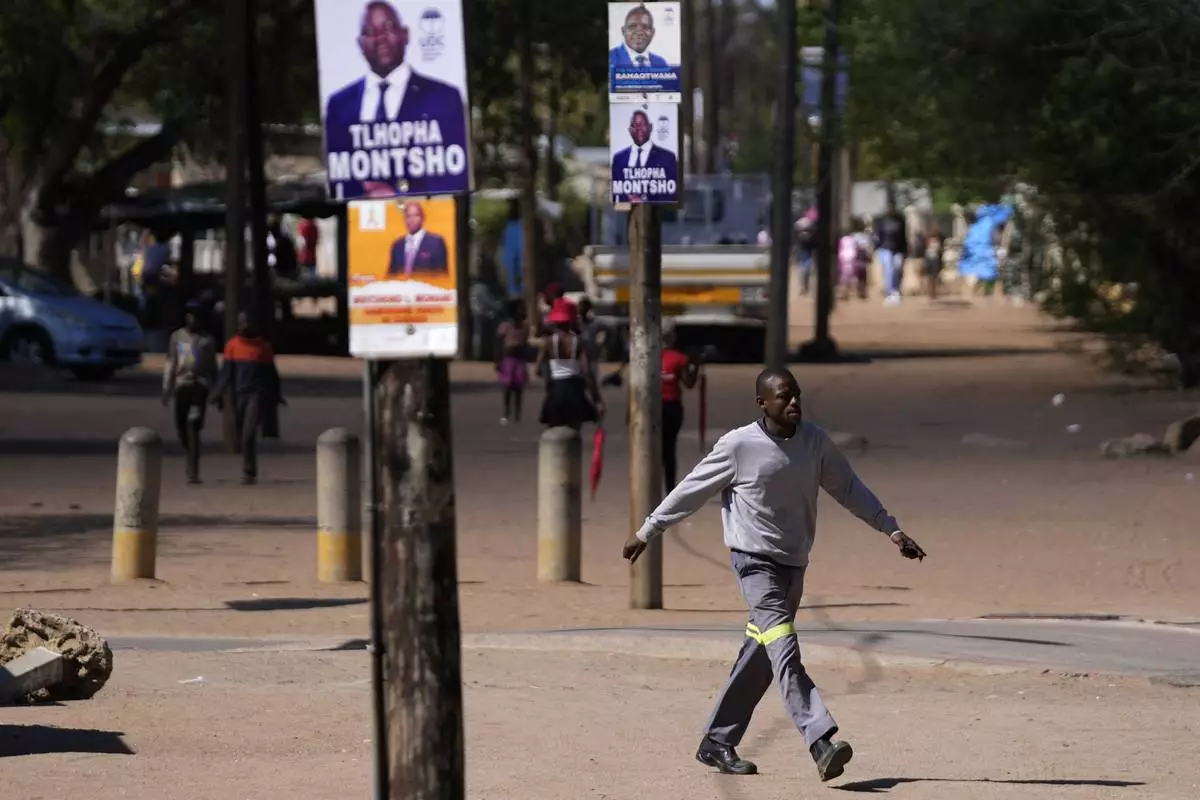
A man walks passes election posters, a day before elections in Gaborone, Botswana, Tuesday, Oct. 29, 2024. (AP Photo/Themba Hadebe)
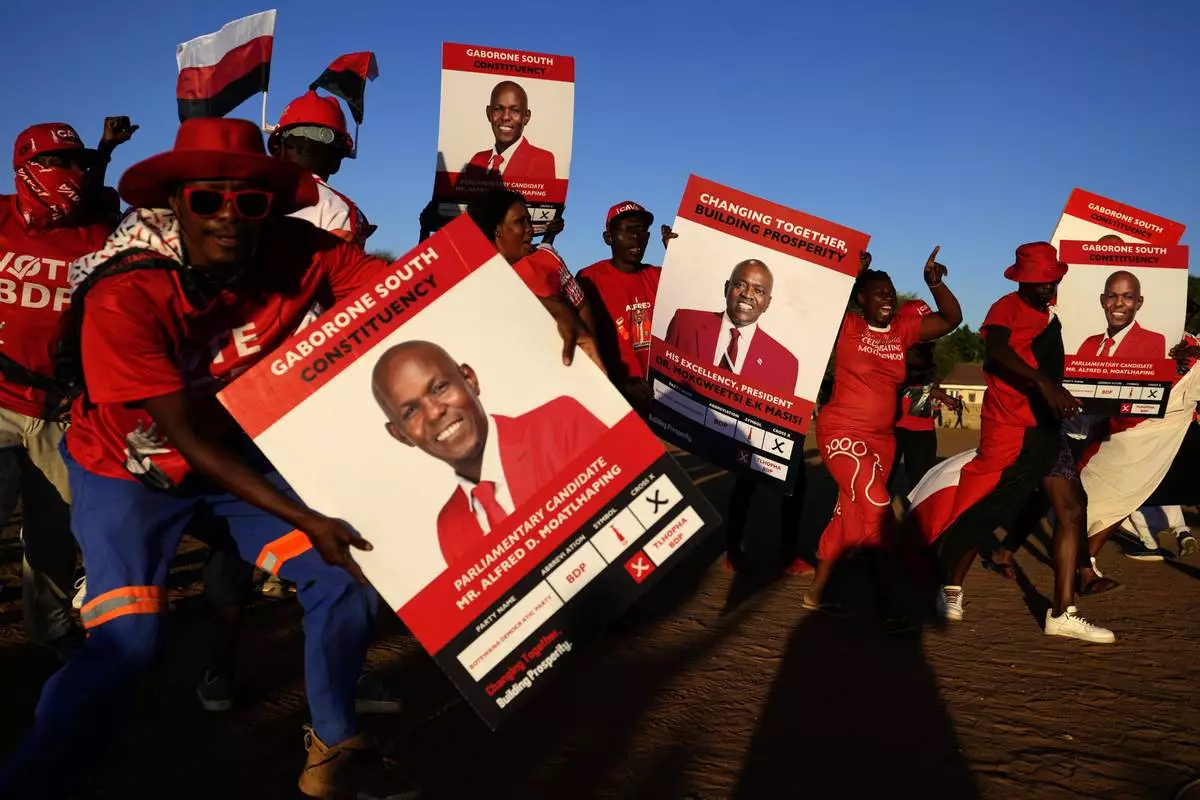
Members of the Botswana Democratic Party sing and dance as they arrive for their election rally a day before elections in Gaborone, Botswana, Tuesday, Oct. 29, 2024. (AP Photo/Themba Hadebe)
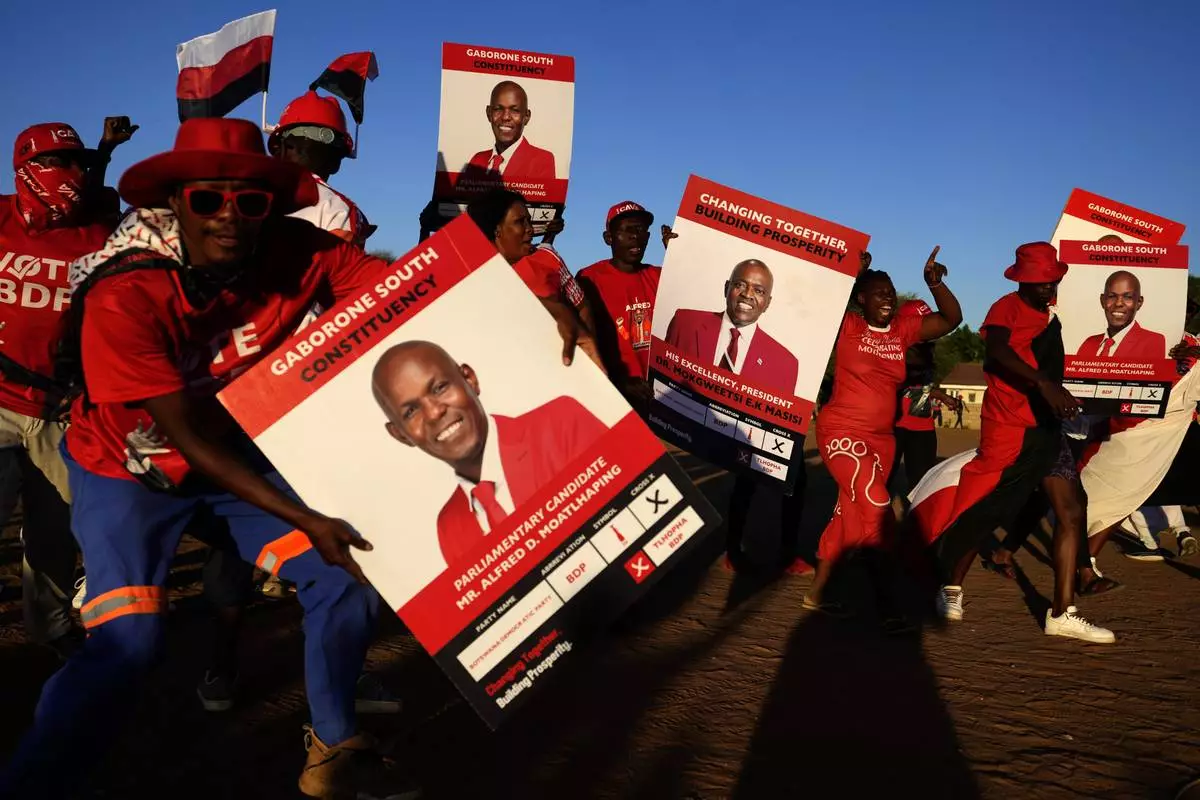
Members of the Botswana Democratic Party sing and dance as they arrive for their election rally, a day before elections in Gaborone, Botswana, Tuesday, Oct. 29, 2024. (AP Photo/Themba Hadebe)
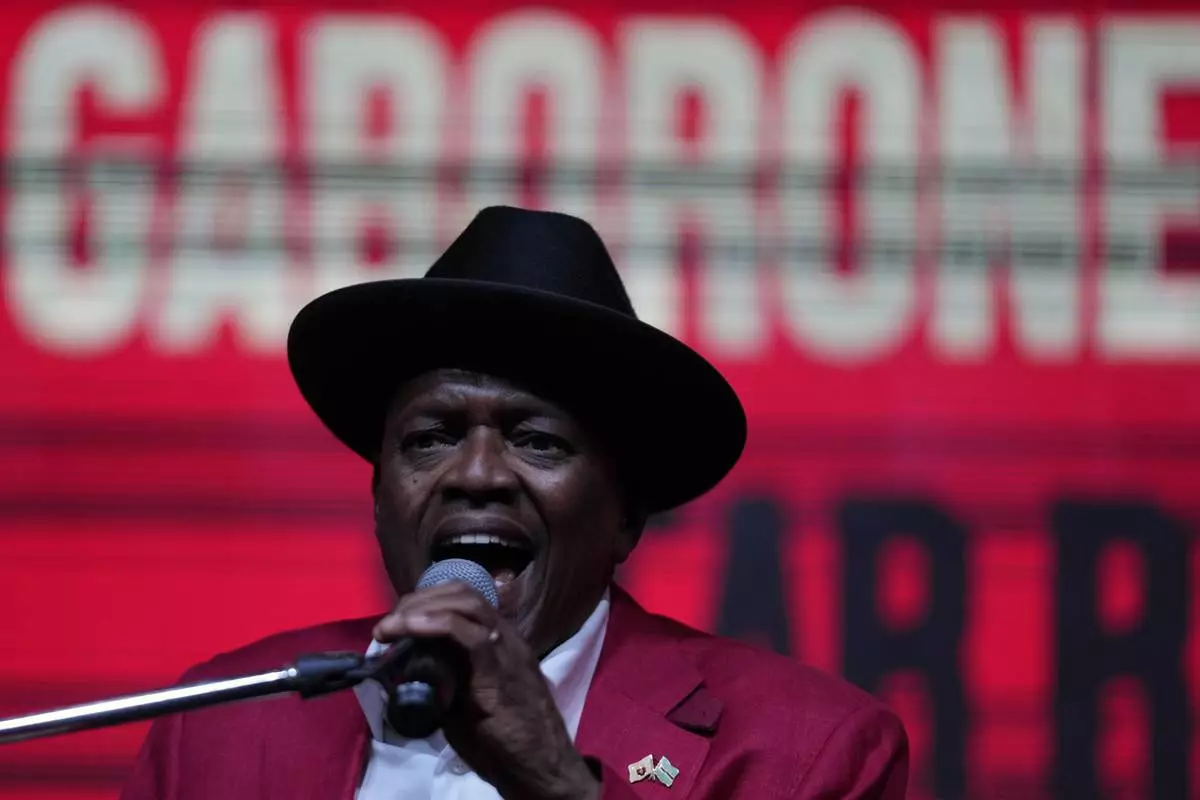
Botswana Democratic Party president Mokgweetsi Masisi speaks during his election rally, a day before elections in Gaborone, Botswana, Tuesday, Oct. 29, 2024. (AP Photo/Themba Hadebe)
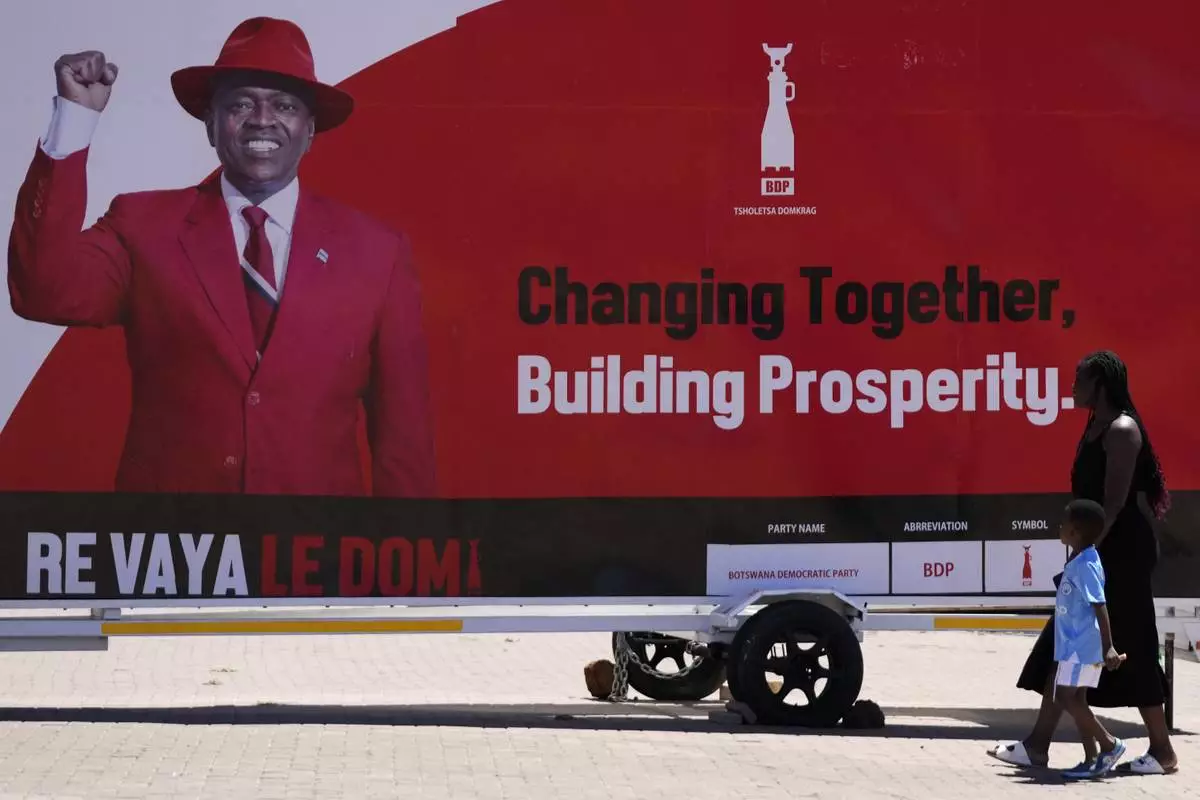
A woman and a child passes an election poster of ruling party Botswana Democratic Party president Mokgweetsi Masisi in Gaborone, Botswana, Tuesday, Oct. 29, 2024. (AP Photo/Themba Hadebe)
JERUSALEM (AP) — Israeli legislation cutting ties with the U.N. agency for Palestinian refugees raised fears that the largest provider of aid to Gaza could be shut out of the war-ravaged territory, even as the implications of the new laws remained unclear Tuesday.
The agency known as UNRWA provides essential services to millions of Palestinians across the Middle East and has underpinned aid efforts in Gaza throughout the Israel-Hamas war. Legislation barring it from operating in Israel passed with an overwhelming majority Monday. Israel says UNRWA has allowed itself to be infiltrated by Hamas, with the militants siphoning off aid and using the agency’s facilities as shields. UNRWA denies the allegations, saying it is committed to neutrality and acts quickly to address any wrongdoing by its staff.
The two newly passed laws are all but certain to hamper UNRWA's work in Gaza and the occupied West Bank, as Israel controls access to both territories. But the details of how the legislation would be implemented, and potential workarounds, remain unclear. It could also face legal challenges.
Either way, the laws could have major consequences for Palestinians in Gaza, who are heavily reliant on emergency food aid more than a year into a war that has killed tens of thousands, according to local officials who don't distinguish combatants from civilians; displaced 90% of the population of 2.3 million; and left much of the territory in ruins.
The first law prohibits UNRWA from “operating any mission, providing any service or conducting any activity, either directly or indirectly, within Israel’s sovereign territory,” according to a statement from parliament.
It's unclear whether UNRWA would still be able to operate inside Gaza and the West Bank, territories Israel captured in the 1967 Mideast war but has never formally annexed. The Palestinians want both to be part of a future state.
The second law prohibits Israeli state agencies from communicating with UNRWA and revokes an agreement dating to 1947, before Israel was created, under which it facilitated UNRWA’s work.
With Israel controlling all access to Gaza and the West Bank, it could be difficult for UNRWA staff to enter and leave the territories through Israeli checkpoints, and to bring in vital supplies for its schools, health centers and humanitarian programs.
UNRWA and its staff would also lose their tax exemptions and legal immunities.
UNRWA’s headquarters are in east Jerusalem, which Israel seized in the 1967 war and annexed in a move not recognized internationally.
Much of the agency’s supply lines to the territories run through Israel, and shutting them down could create even more obstacles to getting essential aid — everything from flour and canned vegetables to winter blankets and mattresses — into Gaza.
At present, all shipments of aid into Gaza must be coordinated with COGAT, the Israeli military body in charge of civilian affairs, which inspects all shipments. Aid groups say their work is already hampered by Israeli delays, ongoing fighting and the breakdown of law and order inside Gaza.
Aid levels plunged in the first half of October as Israel closed crossings into north Gaza, where hunger experts say the threat of starvation is most acute. COGAT attributed the decline to closures related to the Jewish holidays and troop movements for a large, ongoing offensive in northern Gaza.
In the first 19 days of October, the U.N. says, 704 trucks of aid entered the Gaza Strip, down from over 3,018 trucks in September and August. COGAT’s own tracking dashboard shows aid deliveries in October plunging to under a third of their September and August levels.
The new laws would also likely bar UNRWA from banking in Israel, raising questions about how it would continue to pay thousands of Palestinian staff in Gaza and the West Bank. Its international staff would likely have to relocate to third countries like Jordan.
Rights groups say Israel is obliged under international law to provide for the basic needs of people in the territories it occupies. Israel also faces increasing pressure from the Biden administration, which says it may have to reduce U.S. military support if there isn’t a dramatic increase in aid going into Gaza.
State Department spokesman Matthew Miller said the United States was “deeply troubled” by the legislation, which “poses risks for millions of Palestinians who rely on UNRWA for essential services.”
“We are going to engage with the government of Israel in the days ahead about how they plan to implement it” and see whether there are any legal challenges, he said.
Prime Minister Benjamin Netanyahu said in a statement Monday that Israel is“ready to work with our international partners to ensure Israel continues to facilitate humanitarian aid to civilians in Gaza in a way that does not threaten Israel’s security.”
But many of those partners insist there is no alternative to UNRWA.
A spokesperson for the U.N. children’s agency, which also provides aid to Gaza, denounced the new laws in unusually strong language, saying "a new way has been found to kill children.”
James Elder said the loss of UNRWA “would likely see the collapse of the humanitarian system in Gaza.” His agency, known as UNICEF, “would become effectively unable to distribute lifesaving supplies,” such as vaccines, winter clothes, water and food to combat malnutrition.
Israeli officials are considering the possibility of having the military or private contractors take over aid distribution, but have yet to develop a concrete plan, according to two officials who spoke on condition of anonymity to discuss the closed-door discussions.
COGAT referred all questions on the new legislation to the government.
At risk is not just UNRWA’s aid delivery to Gaza, where it is also the largest employer. UNRWA also operates schools in the occupied West Bank serving over 330,000 children, as well as health care centers and infrastructure projects.
Amy Pope — head of the International Organization for Migration, another U.N. body — said it would not be able to fill the gap left by UNRWA, which she described as “absolutely essential.”
“They provide education. They provide health care. They provide some of the most basic needs, for people who have been living there for decades,” she said.
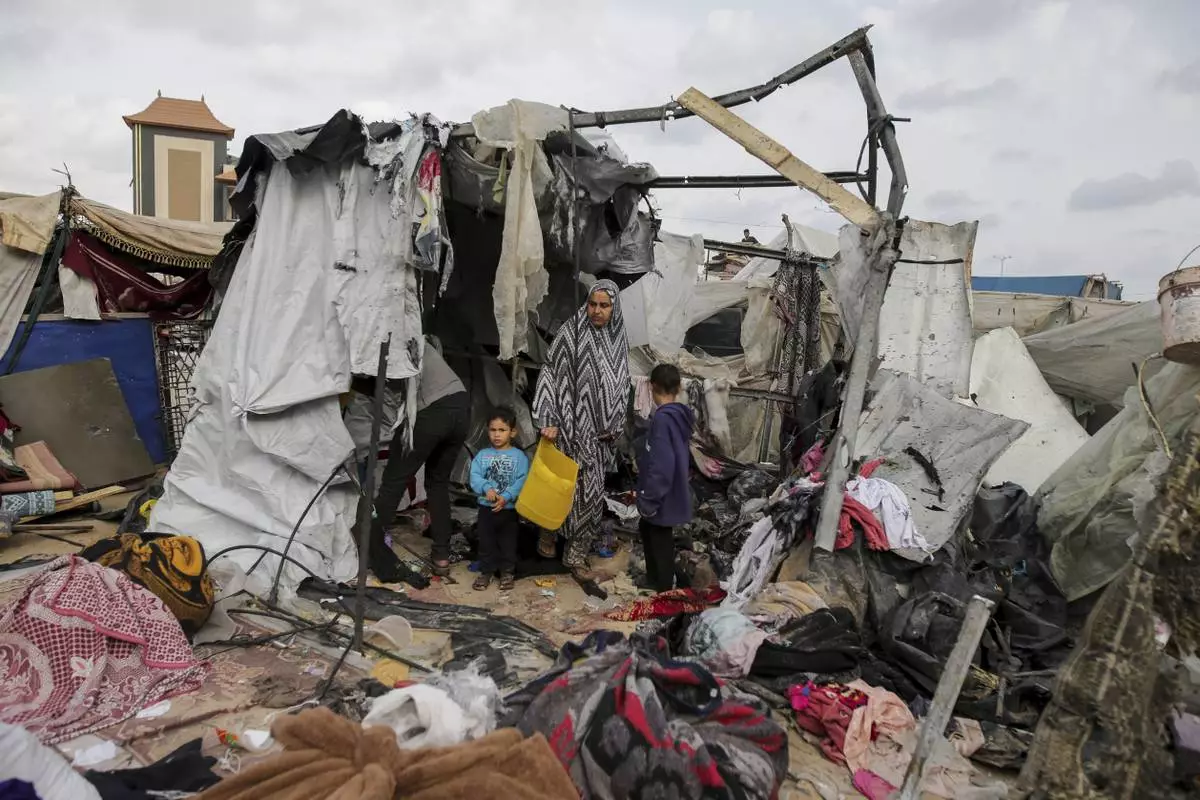
FILE - Displaced Palestinians inspect their tents destroyed by Israel's bombardment, adjunct to an UNRWA facility west of Rafah city, Gaza Strip, Tuesday, May 28, 2024. (AP Photo/Jehad Alshrafi, File)
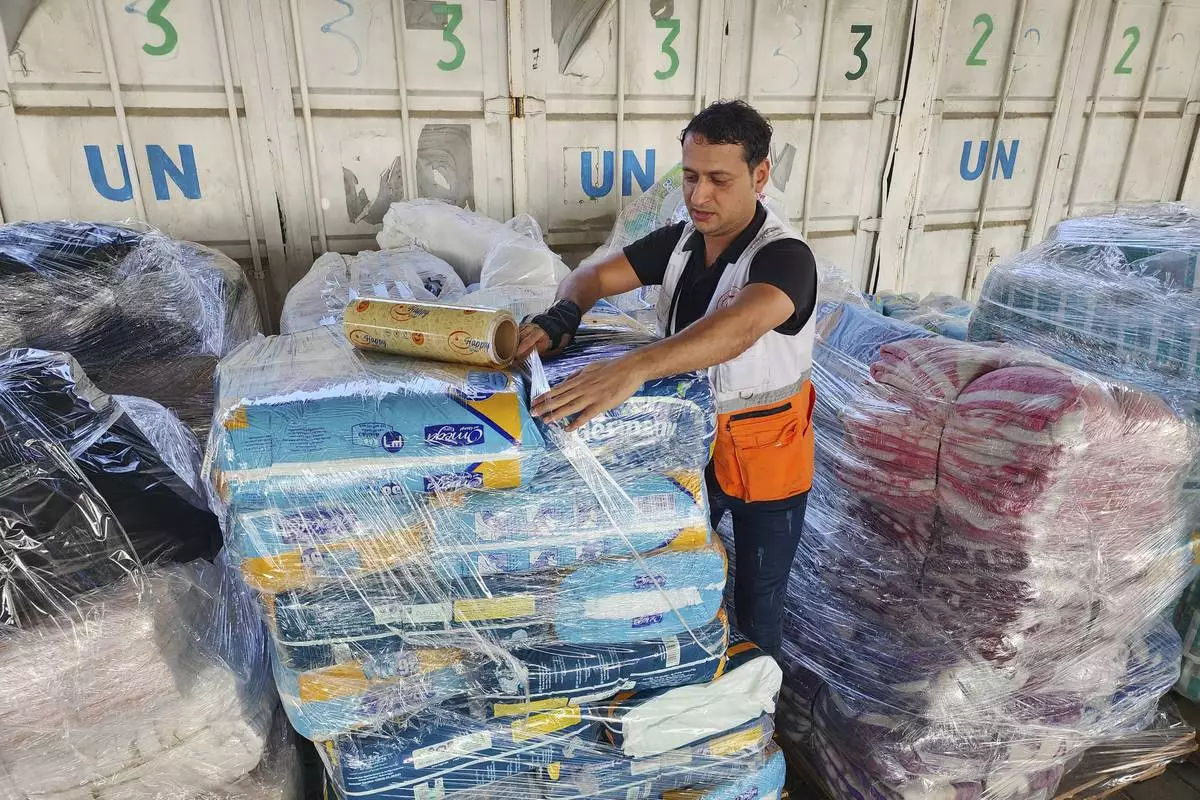
FILE - United Nations and Red Crescent workers prepare the aid for distribution to Palestinians at UNRWA warehouse in Deir Al-Balah, Gaza Strip, on Monday, Oct. 23, 2023. (AP Photo/Hassan Eslaiah, File)
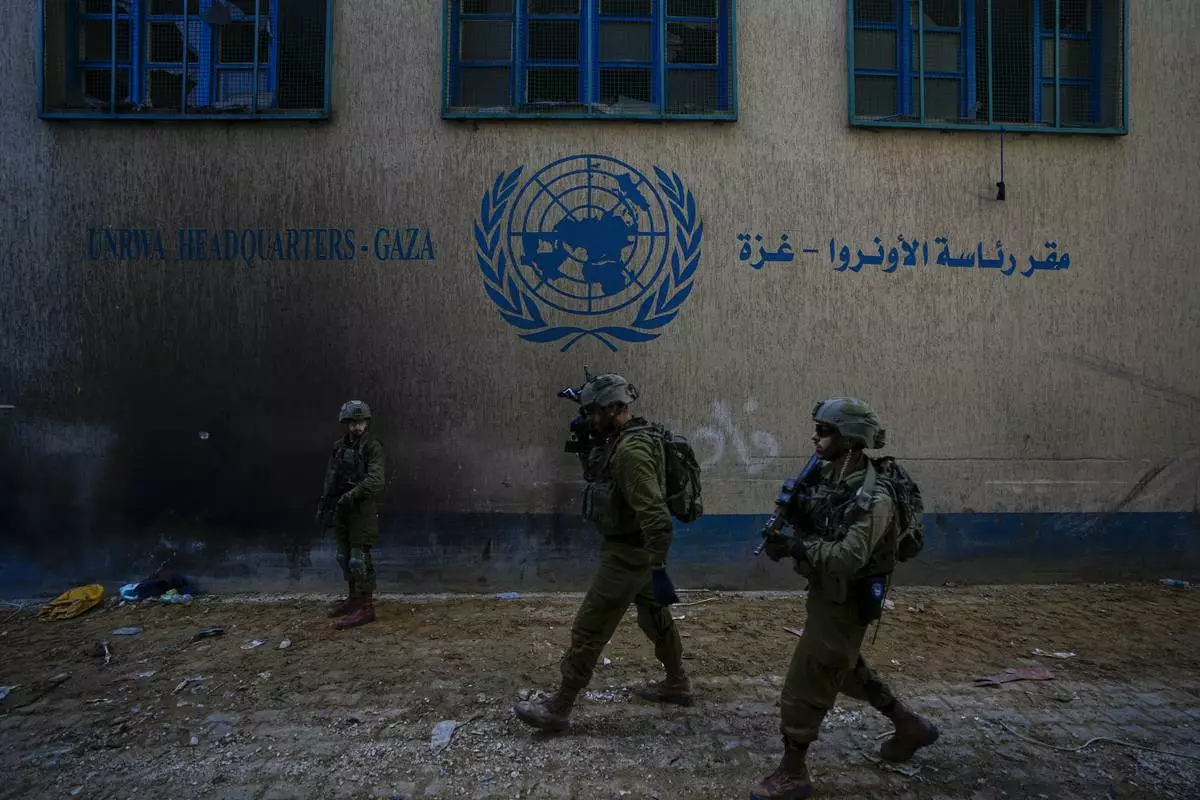
FILE - Israeli soldiers take position as they enter the UNRWA headquarter where the military discovered tunnels underneath of the U.N. agency that the military says Hamas militants used to attack its forces during a ground operation in Gaza, Thursday, Feb. 8, 2024. (AP Photo/Ariel Schalit, File)
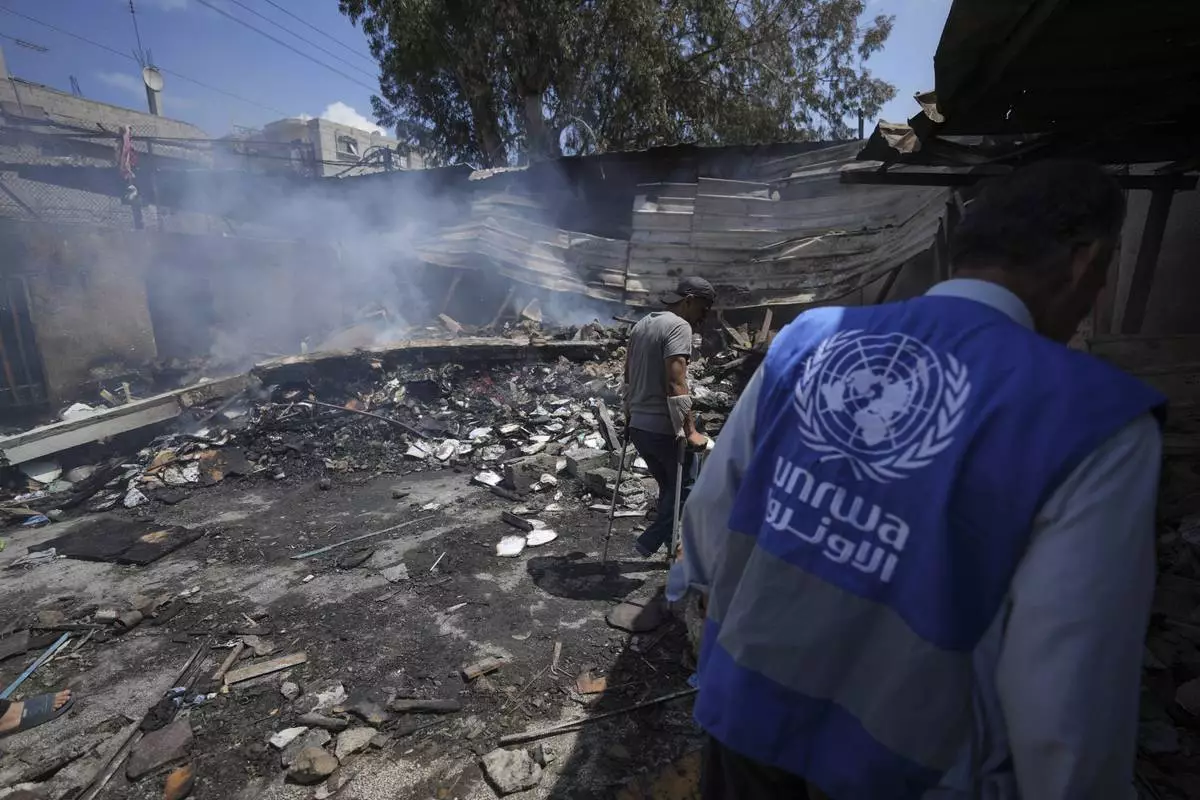
FILE - Palestinians look at the destruction after an Israeli strike on a school run by UNRWA, the U.N. agency helping Palestinian refugees, in Nuseirat, Gaza Strip, May 14, 2024. (AP Photo/Abdel Kareem Hana, File)
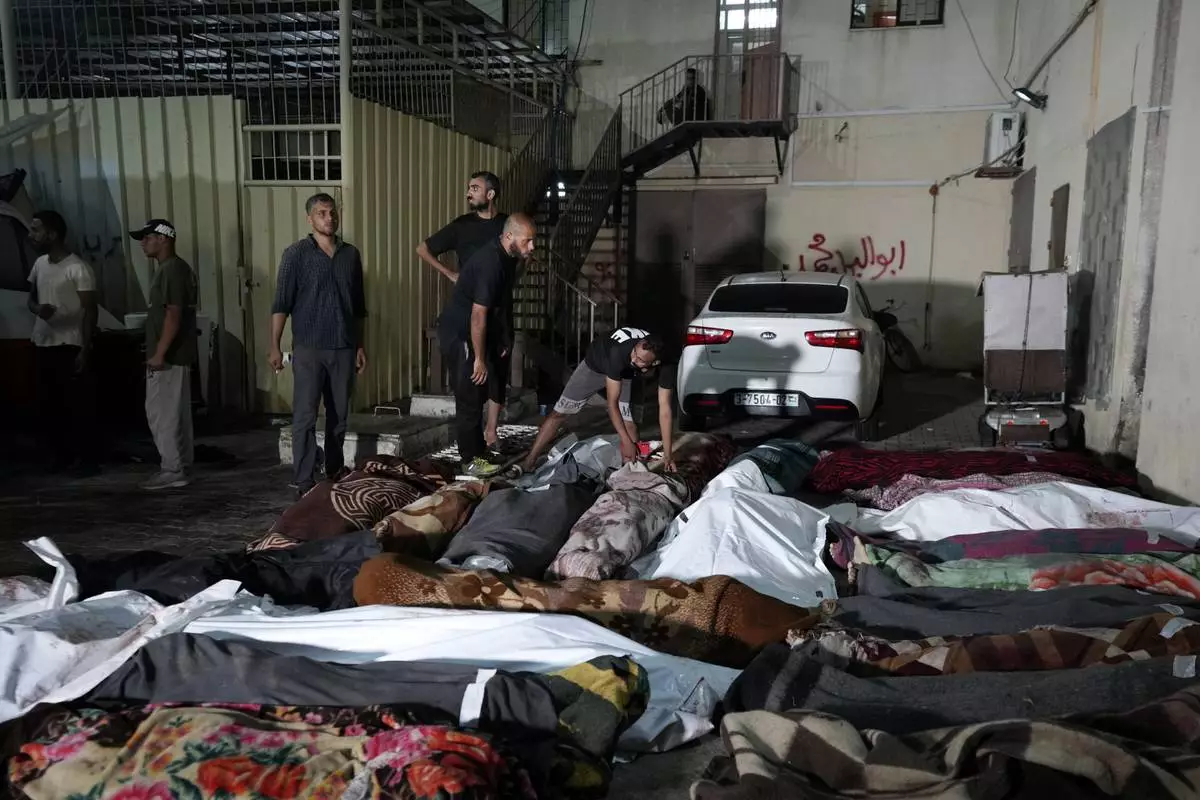
FILE - Palestinians check the bodies of their relatives killed in an Israeli bombardment of UNRWA school at Nusseirat refugee camp, in front of the morgue of al-Aqsa Martyrs hospital in Deir al-Balah, central Gaza Strip, early Thursday, June 6, 2024. (AP Photo/Abdel Kareem Hana, File)
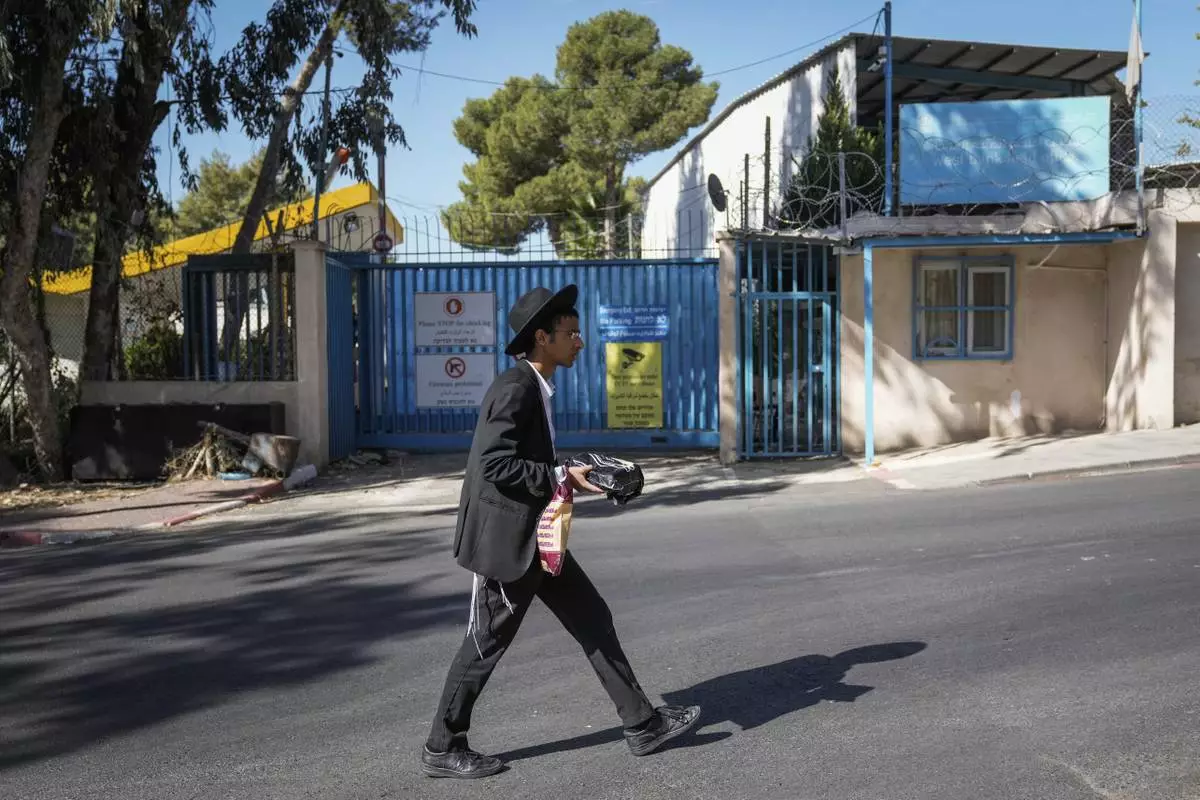
An ultra-Orthodox Jewish man walks past the east Jerusalem compound of UNRWA, the U.N. agency helping Palestinian refugees, Tuesday, Oct. 29, 2024. (AP Photo/Mahmoud Illean)
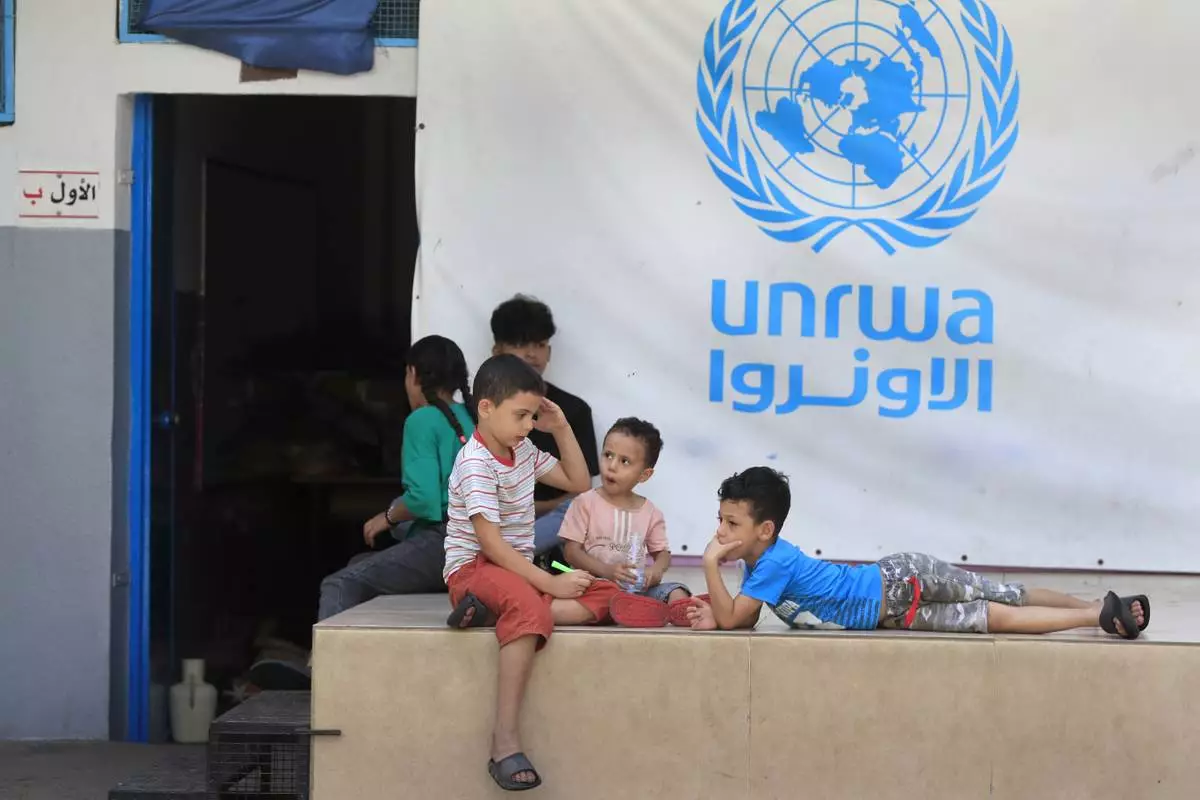
FILE - Palestinian children who fled with their parents from their houses in the Palestinian refugee camp of Ein el-Hilweh, gather in the backyard of an UNRWA school, in Sidon, Lebanon, Sept. 12, 2023. (AP Photo/Mohammed Zaatari, File)



















